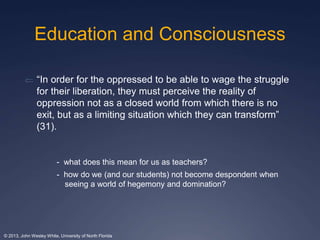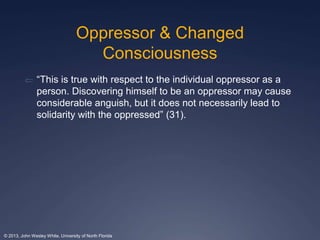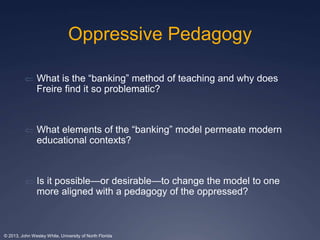The document discusses the inherent biases in education and the implications they have on teachers and students, highlighting the ethical responsibility to acknowledge these biases. It examines the historical context of literacy, power dynamics, and the relationship between the oppressor and the oppressed as articulated by Paulo Freire, emphasizing the need for a critical consciousness to challenge oppressive structures. Furthermore, it critiques traditional pedagogical approaches, advocating for a more transformative and liberating educational practice.
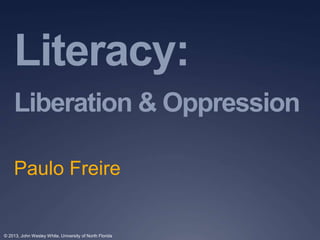
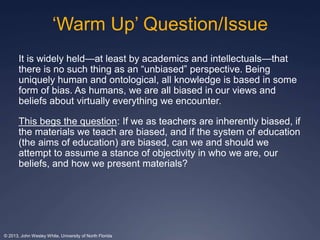
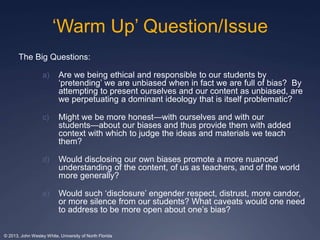
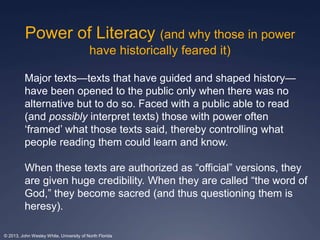
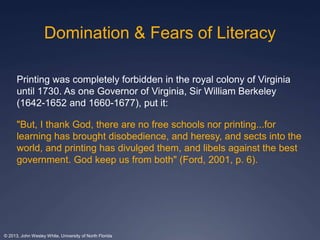
![Domination & Fears of Literacy
The advent of the printing press was feared and English
translations of the Bible were initially fought by the Church: “[U]nder
the 1408 Constitutions of Oxford, it was strictly forbidden to
translate the Bible into the native tongue” *
With technology—the printing press—and future translations of the
Bible imminent, King James commissioned scholars to create The
King James Version (1611). This version was ‘authorized’ by the
Church of England and ‘rectified’ problems puritans had with the
two earlier English translations.
The King James Version of the Bible excludes and/or changes
some of the content found in the Vulgate and Apocrypha.
* http://www.bl.uk/onlinegallery/sacredtexts/kingjames.html
© 2013, John Wesley White, University of North Florida](https://image.slidesharecdn.com/literacy-liberationandoppression-141110091057-conversion-gate01/85/Literacy-liberation-and-oppression-6-320.jpg)
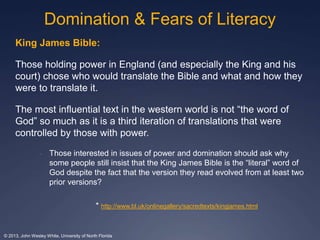


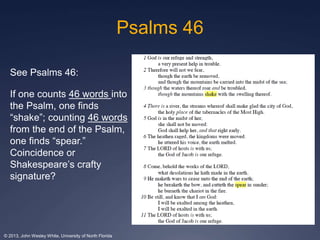
![Literacy FOR Oppression
“The rationale for the Iiteracy campaign [Sweden, 1686], one of
the most successful in Western history before the last two
decades, was conservative: piety, civility, orderliness, and
military preparedness were the major goals” (Graff 1981: 22)
Literacy as Oppression - History and Today
Literacy as Oppression (academic article)
© 2013, John Wesley White, University of North Florida](https://image.slidesharecdn.com/literacy-liberationandoppression-141110091057-conversion-gate01/85/Literacy-liberation-and-oppression-11-320.jpg)
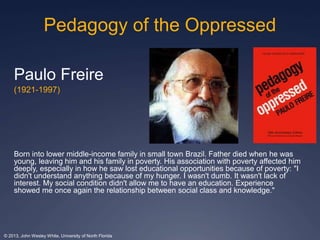
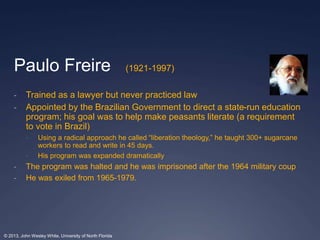
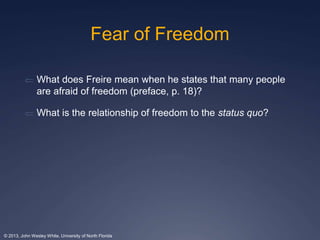
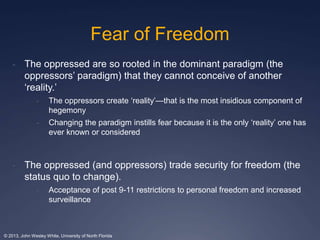
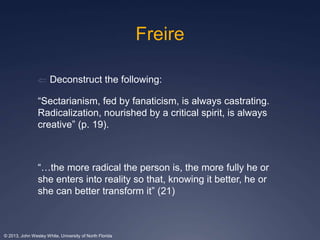
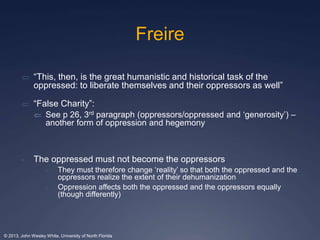
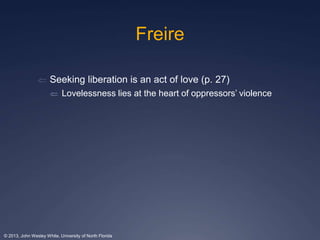

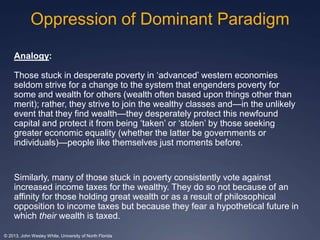
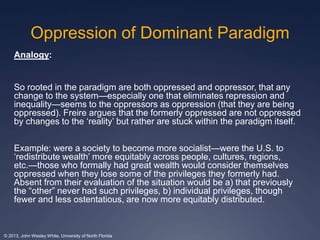
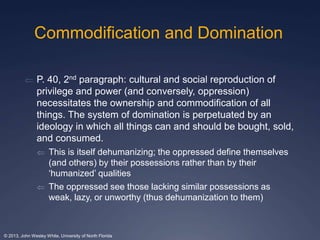
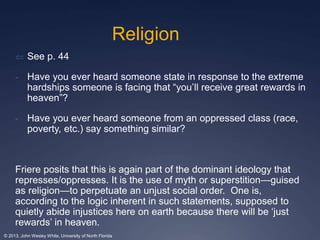
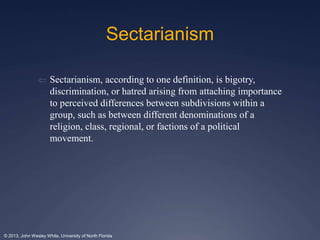
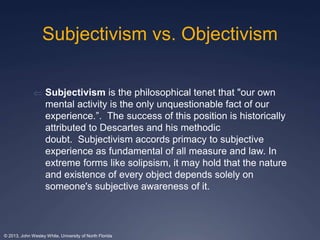
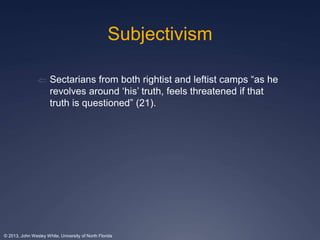
![Education and Critical
Consciousness
“To surmount the situation of oppression, people must first
critically recognize its causes, so that through transforming
action they can create a new situation, one which makes
possible the pursuit of a fuller humanity” (29).
“Yet, although they [the oppressed] desire authentic existence,
they fear it. They are at one and the same time themselves
and the oppressor whose consciousness they have
internalized” (30).
© 2013, John Wesley White, University of North Florida](https://image.slidesharecdn.com/literacy-liberationandoppression-141110091057-conversion-gate01/85/Literacy-liberation-and-oppression-27-320.jpg)
